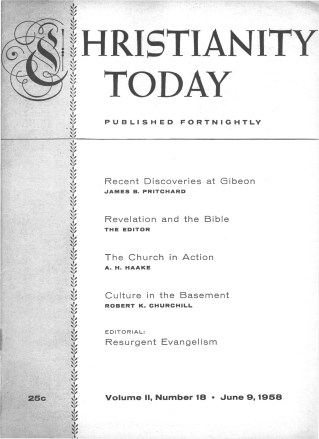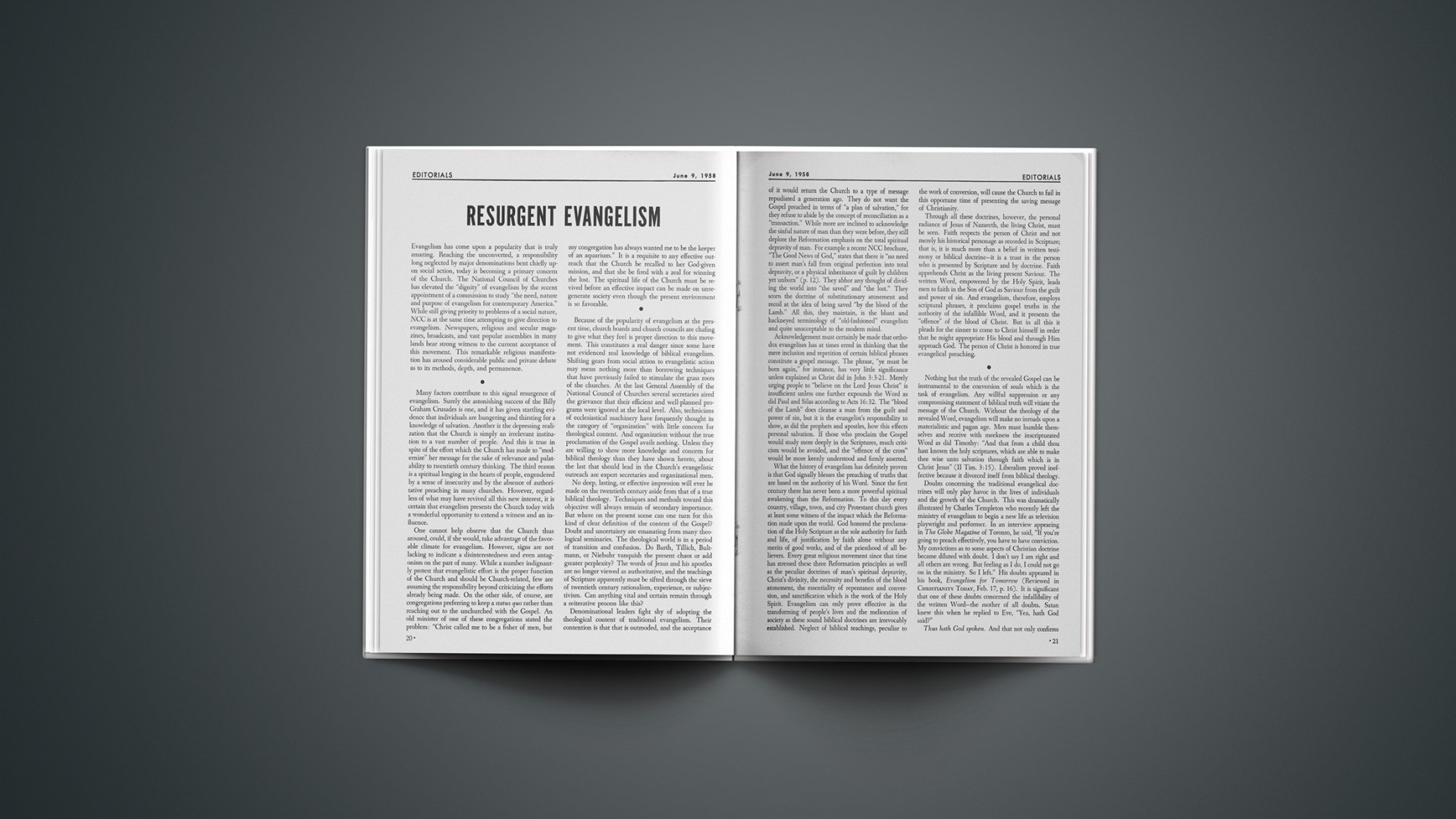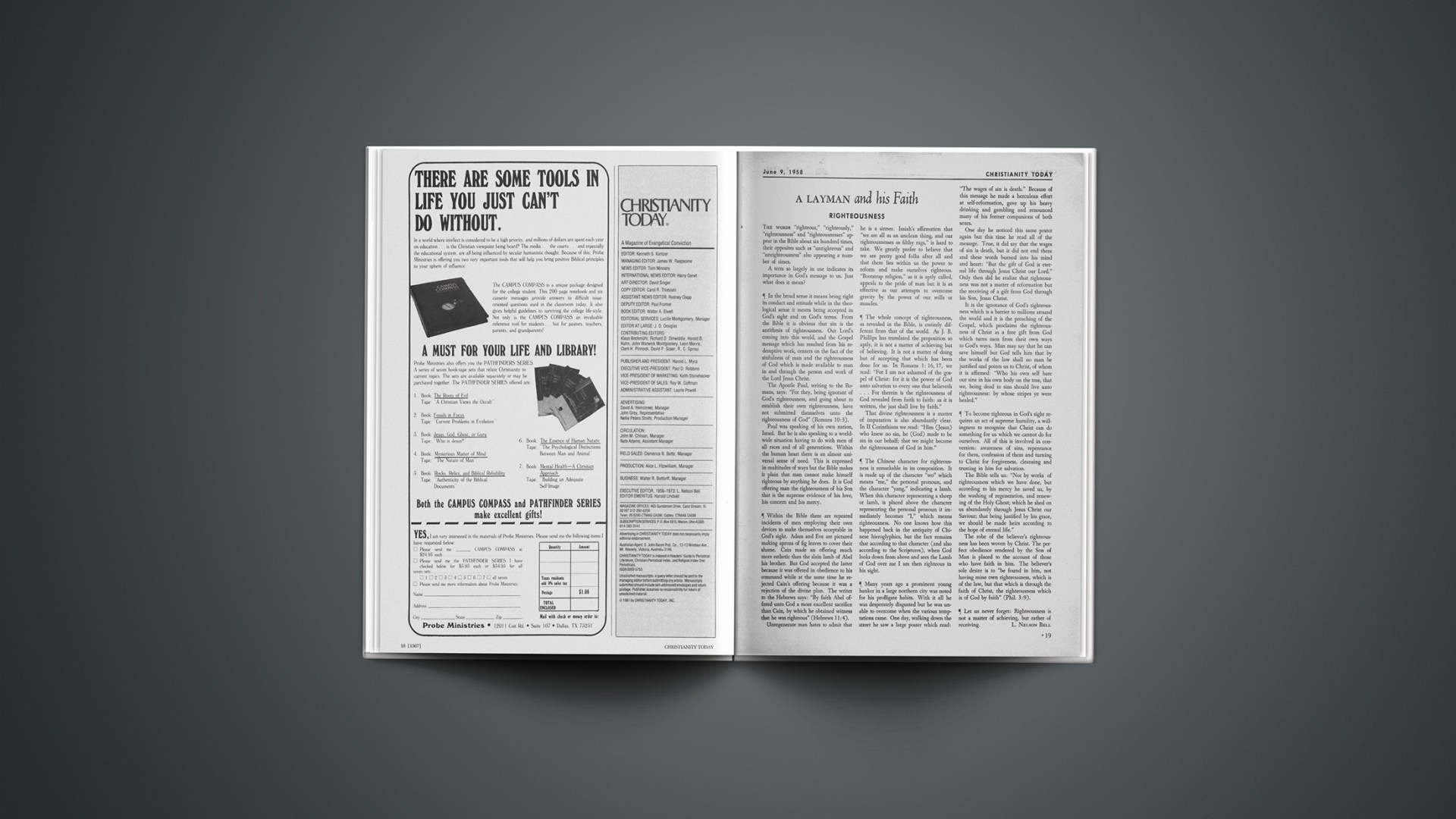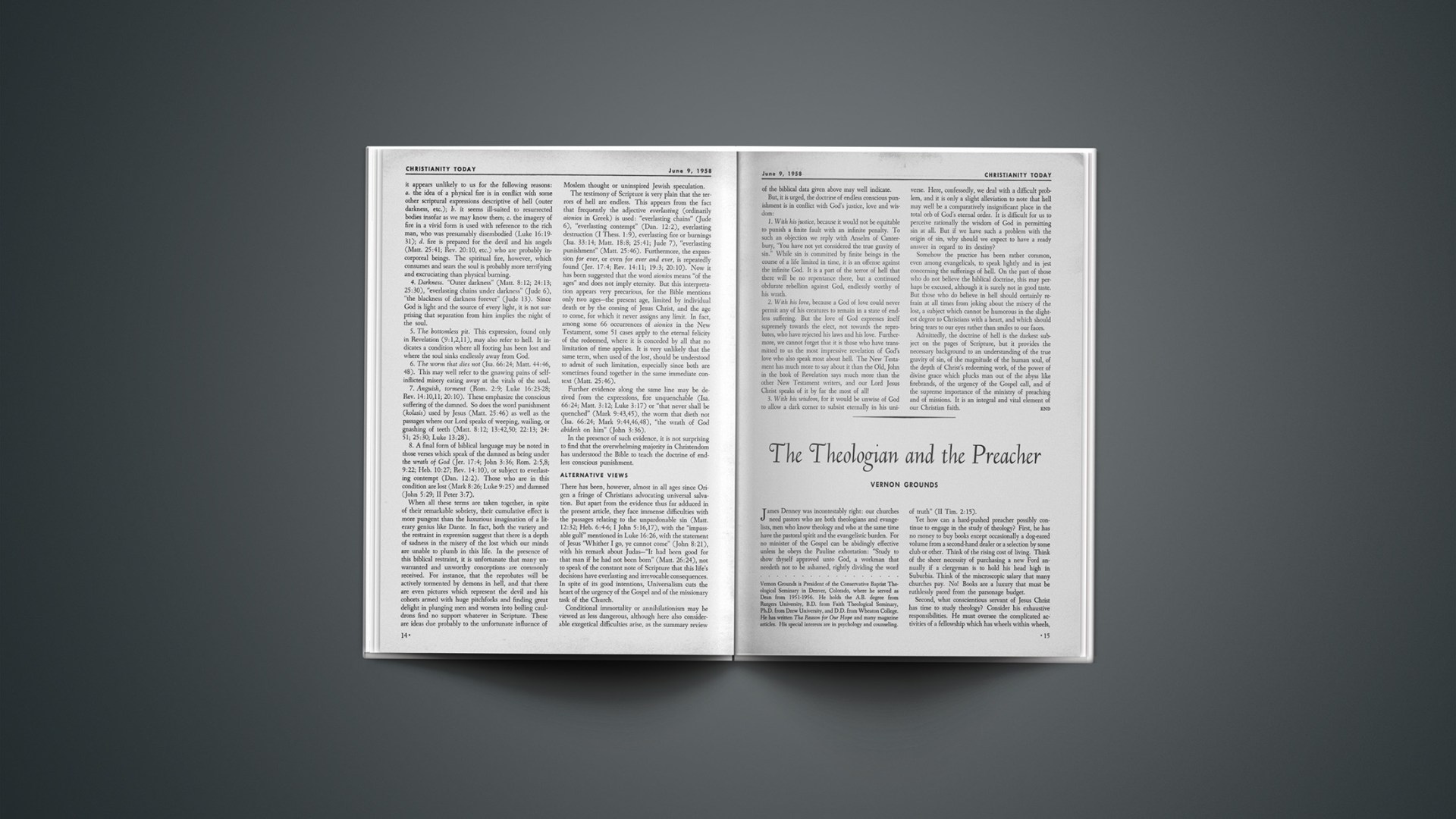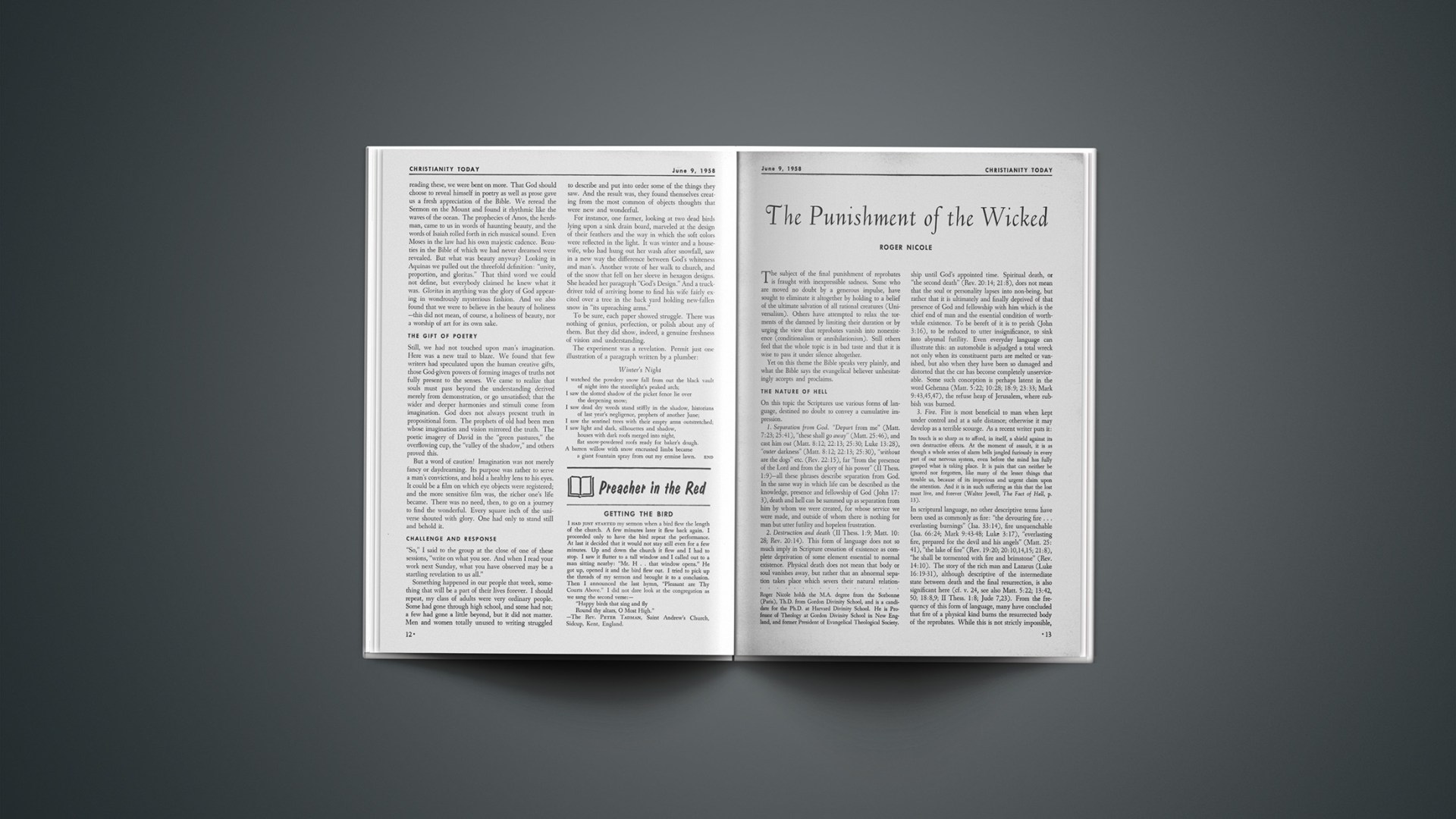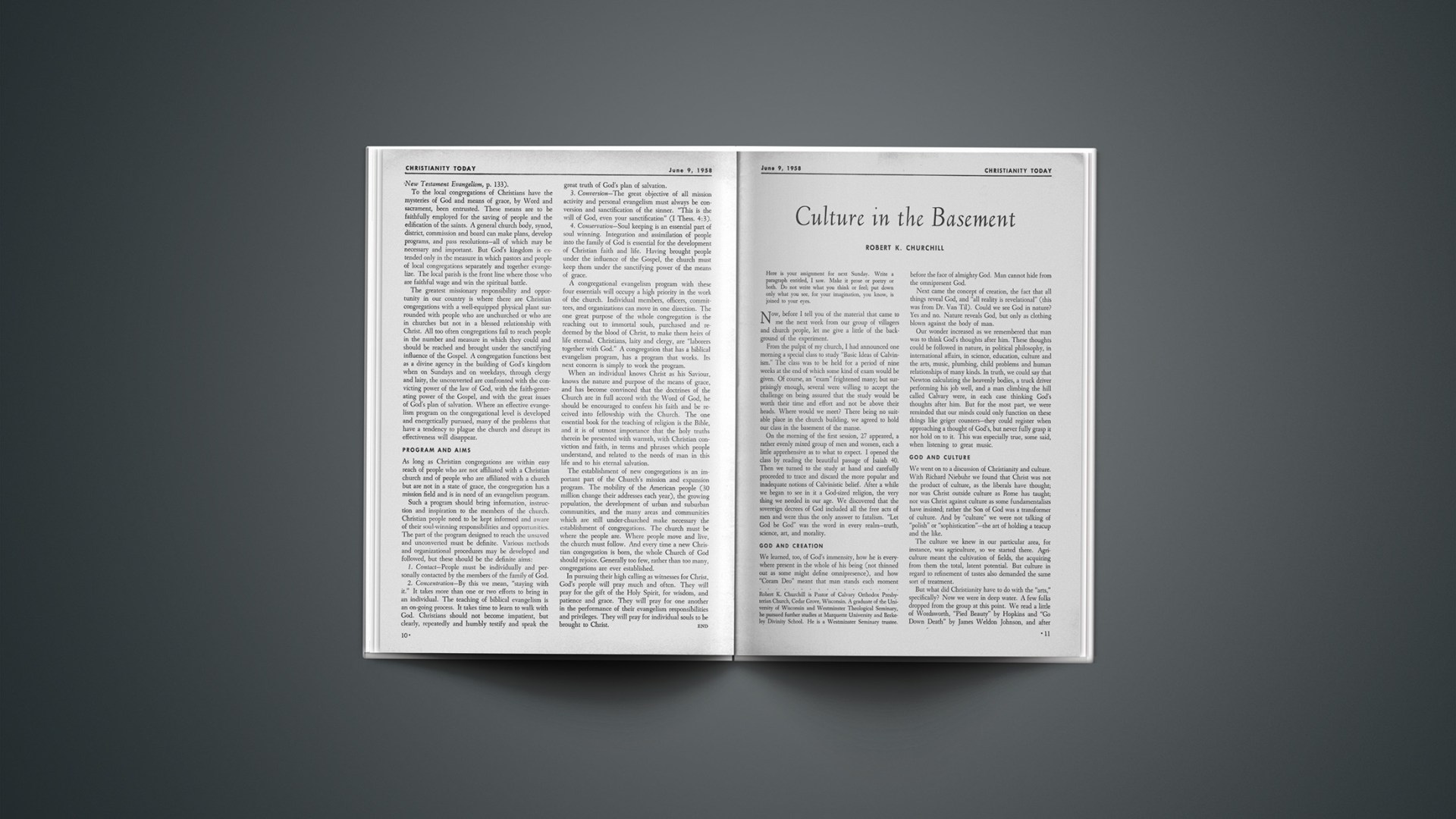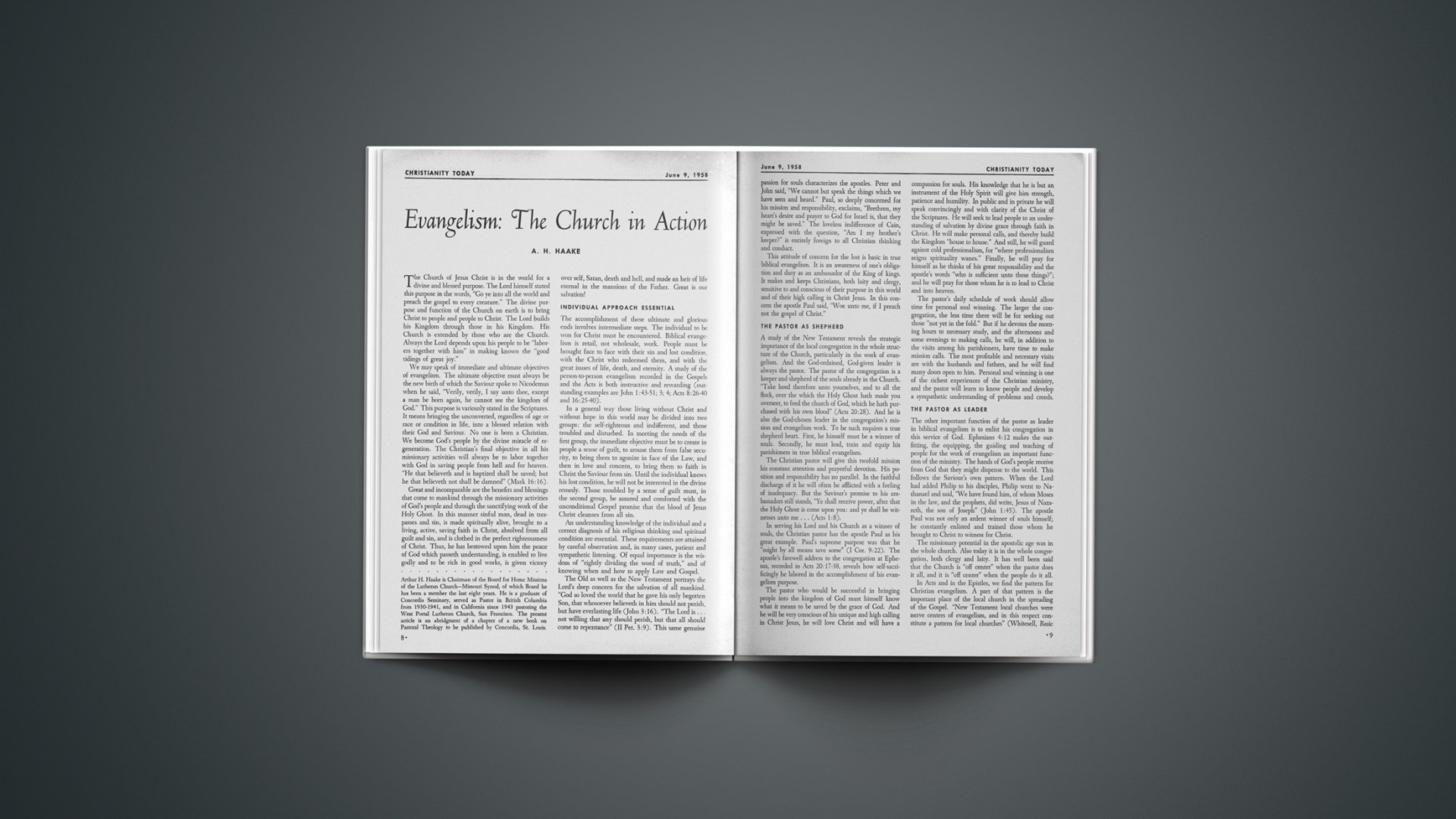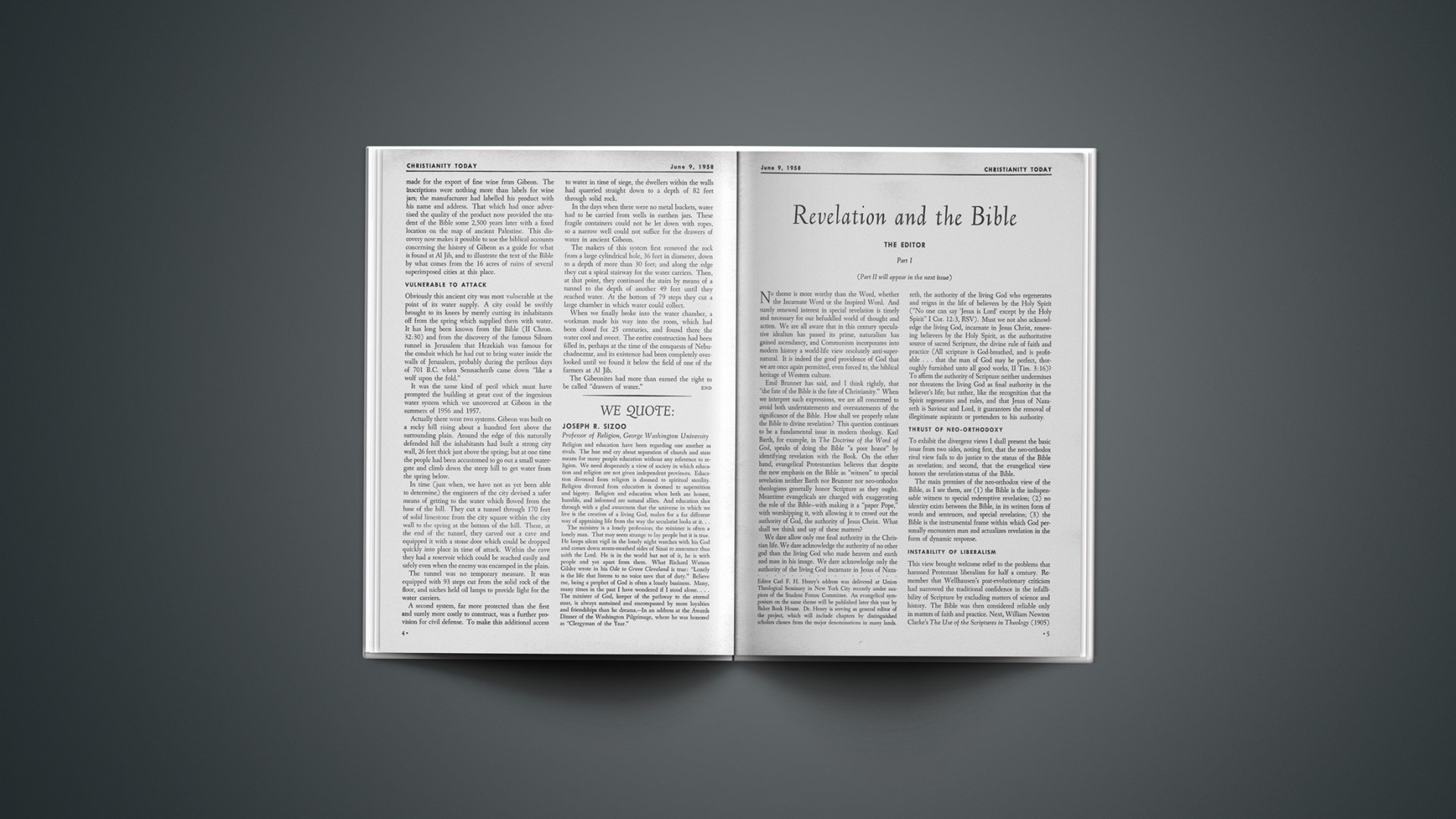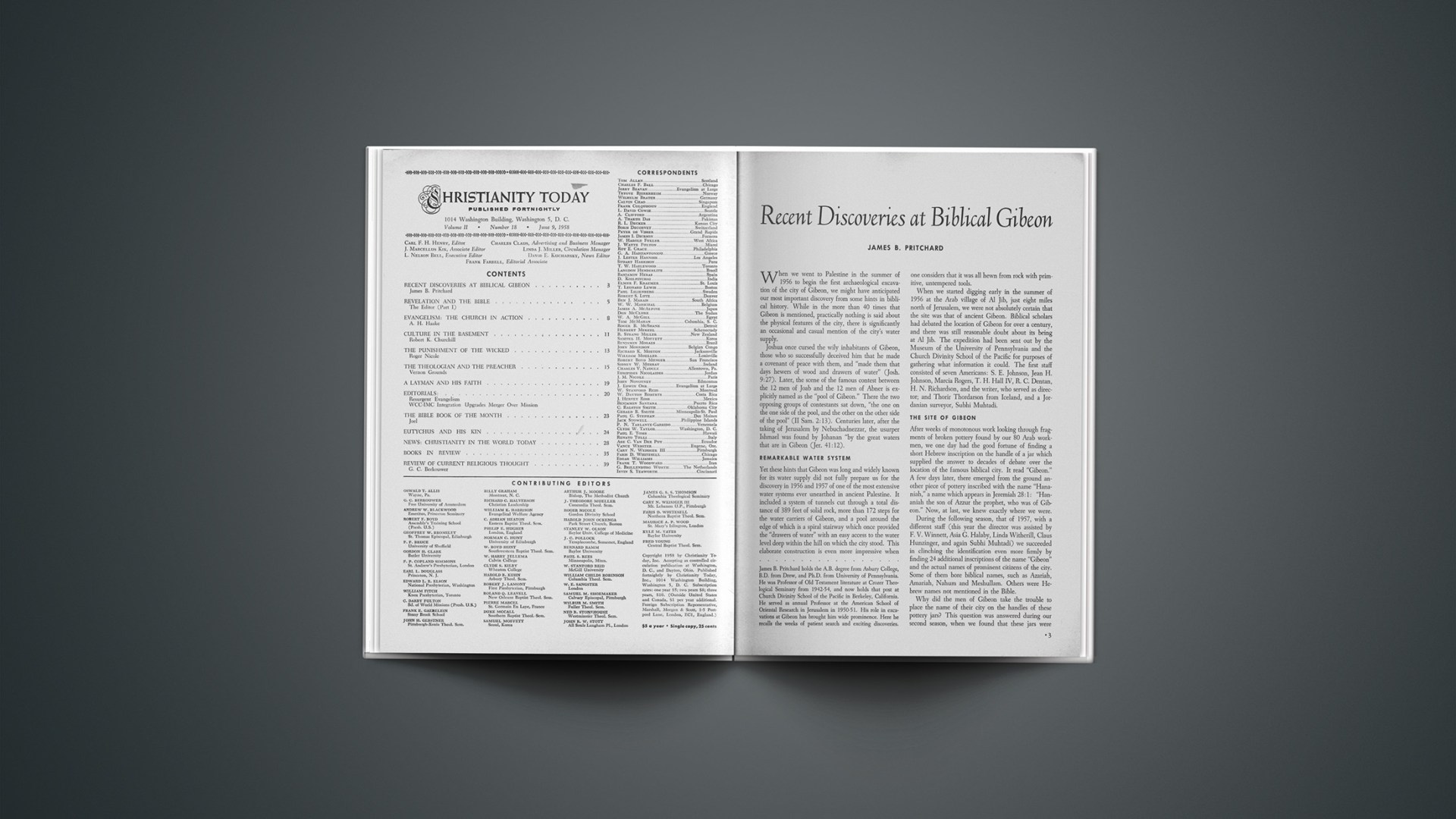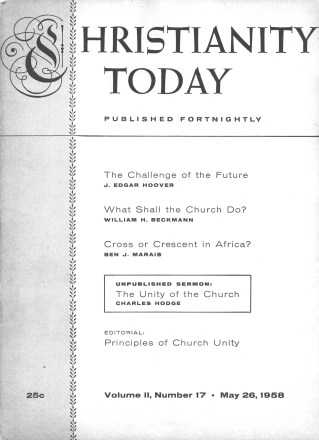Joel
The Book of Joel furnished one of the texts for the first sermon after Pentecost (Acts 2:16–21), but preachers have not frequently followed Peter’s lead since. The absence of some of the great prophetic themes—indictment of specific sins, sensitive social consciousness, etc.—coupled with the difficulty of interpretation has caused some preachers to shy away from the message of our prophet. However, the description of God’s swift and awful judgment by means of the locust plague, the heralding of the day of the Lord, the call to repentance because of the gracious nature of God, the outpouring of the Spirit, the picture of security and prosperity in Judah and Jerusalem after the nations are threshed in the Valley of Jehoshaphat—these themes, and many more, may provide nourishing food for sermonic thought.
Authorship And Date
We know nothing of the personal history of Joel except the name of his father, Pethuel. It is improbable that our prophet can be identified with any of the several Joels (“Jehovah is God”) mentioned in the Bible. The prophet does not tell us where or when he lived. The answer to the former question may be inferred from the many references to Judah and especially Jerusalem and from the constant concern over the Temple sacrifices; but the question of the date of Joel is not to be answered so readily.
This problem has traditionally been solved in one of two ways: 1) by attributing Joel to the period of the minority of Jehoash (Joash) toward the end of the ninth century B.C., or 2) by dating the prophet after the return, near the end of the fifth century B.C. The statement of G. A. Smith is characteristic of the attitude of most scholars toward this problem: “In the history of prophecy the Book of Joel must be either very early or very late, and with few exceptions the leading critics place it either before 800 B.C. or after 500.”
Recently A. S. Kapelrud has argued that Joel originated in a period between the two extremes mentioned and should be dated just after the death of Josiah who perished at Megiddo in about 609 B.C. In this view, which had been suggested much earlier by Konig, Joel would be a contemporary of Jeremiah and Zephaniah. Kapelrud’s approach has not yet gained acceptance, although in many ways it commends itself as a compromise between two extremes. The last word has not been said about the date, but our understanding of the prophet’s message does not hinge on the time of his prophecy. In few Old Testament writings is the date of so little practical importance.
The unity of Joel appears to be accepted by most modern scholars, in spite of the questions raised in the commentaries of Duhm and Bewer, who attributed the apocalyptic portions to a later hand. A. S. Kapelrud, A. Bentzen, and R. H. Pfeiffer are among those who (along with conservatives) have gone on record in favor of the unity of the book.
Structure And Style
The book divides into two almost equal parts: 1:1–2:17 and 2:18–3:21. In the first section the prophet speaks; in the second, the Lord addresses his people and the nations. The following is a suggested outline:
I. The Locust Plague and the Day of the Lord—1:1–2:17
A. The Awful Plague—1:1–20
1. Its unique nature—1:2–4
2. Its effects upon the people—1:5–14
3. Its relation to the day of the Lord—1:15–20
B. The Imminent Day—2:1–17
1. The army of destroyers—2:1–11
2. The hope of deliverance—2:12–17
II. The Coming Victory—2:18–3:21
A. Restoration of the Plague Damage—2:18–27
B. Outpouring of the Spirit—2:28–32
C. Threshing of the Nations in Judgment—3:1–15
D. Rescuing of Judah—3:16–21
Students of Joel have been virtually unanimous in acclaiming the high quality of his poetry. S. R. Driver calls it “bright and flowing,” and Bewer gives the following evaluation: “His style is clear, fluent, and beautiful. The lyrical quality of some of his lines places them among the best of their kind in the O.T., while his graphic, terse descriptions are exceedingly effective” (I.C.C. p. 68). Unfortunately, the English translations are hard-pressed to render satisfactorily the nice word-plays. One might add at this point that the Hebrew text of Joel is in an excellent state of preservation and, in contrast with many of the prophetic writings, presents few knotty problems to the textual critic.
Interpretation
Three types of interpretation have dominated the study of the book of Joel—literal, allegorical, and apocalyptic. According to the literal view, the locusts described in both chapters one and two are actual insects which the author likens to an invading army and depicts in poetic imagery which at times is hyperbolic. Keil, G. A. Smith, Wade, Kirkpatrick, J. A. Thompson, and many others have embraced this interpretation.
Those who hold the allegorical view—among whom may be numbered the Targum, some of the patristic commentators, Pusey, and A. C. Gaebelein—maintain that the locusts are to be interpreted as foreign armies which successively ravage Judah. Pusey names the four invaders corresponding to the four words for “locust” used in 1:4 and 2:25: “Assyrian, Chaldean, Macedonian, and Roman.” He carries the allegorical interpretation a step further when he quotes with favor a patristic interpretation which equates the four types of locusts with “four chief passions” which “desolate successively the human heart.” The subjectivity of this approach has not commended it to most modern commentators, who accept the force of the argument that chapter two compares the locusts to an army. It is unlikely that something would be compared to itself. Those who contend for the apocalyptic method of interpretation, especially Merx and von Hoonacker, view the locusts as apocalyptic creatures who will leave catastrophe in their wake at the day of the Lord. However, the graphic description seems to indicate that the narrator is himself a witness to the devastation which he claims has taken place “before our eyes” (1:16). Furthermore the use of the past tense in the narrative makes it, in Keil’s words, “perfectly obvious that he is not speaking of something that is to take place in the future, but of divine judgment that has been inflicted already.”
Some scholars, such as Bewer and Pfeiffer, have combined elements from two of these interpretations and have held that chapter one is to be read literally while chapter two represents an eschatological or apocalyptic approach. For want of stronger evidence to sustain the allegorical and apocalyptic viewpoints, it seems safe to hold that the locusts of Joel are literal insects which, on this particular occasion, came in successive waves over a period of more than a year (“I will restore to you the years”—2:25) and which may have entered Palestine from the North (2:20) rather than from the South, their more usual point of entry. The prophet sees the calamitous havoc which they work as an harbinger of the day of the Lord which is to bring destruction from the Almighty.
The Day Of The Lord
The terrifying experience of the onslaught of locusts reminds our prophet of the day of the Lord, the time of God’s judicial intervention in the affairs of men. So fraught with terror and so complete in destruction is the insect invasion that Joel cannot help but connect it with the final day of God’s wrath. His picture of the day as a time of destruction and darkness seems to presuppose the great declaration of Amos 5:18–20, in which the Tekoan seeks to obviate the older notion that the day was a season of joy and light. Joel labors under no such misapprehension but accords fully with the tone of Amos’ message. Joel’s correspondence with the emphasis of Amos should be borne in mind in any discussion of the date of Joel.
Though the day of the Lord is great and terrible, there are some redeeming features according to Joel: The Spirit will be poured out on all Israel (so the phrase “all flesh” seems to signify in the context), and deliverance will belong to all who sincerely trust in God for refuge. Joel, like the other prophets, did not distinguish between the time of God’s grace when the Spirit would be outpoured and the time of God’s wrathful intervention at the culmination of human history when the nations will be trodden as grapes and threshed as grain in the valley where God judges, the Valley of Jehoshaphat. For an enlightening discussion of the concept of the day of the Lord, one may consult Professor H. H. Rowley’s The Faith of Israel (London: 1956), pp. 177–201.
Joel And The New Testament
In addition to providing the text for Peter’s sermon at Pentecost (which is quoted almost verbatim from the Septuagint), the book of Joel has left its stamp on the New Testament in several apocalyptic passages. John’s picture of the locust plague in Revelation 9 is certainly based on Joel’s description: the locusts are said to look like horses arrayed for battle (cf. Rev. 9:7 with Joel 2:4); they have teeth like lions’ teeth (cf. Rev. 9:8 with Joel 1:6); they make a sound like chariots (cf. Rev. 9:9 with Joel 2:5). In addition Joel may have made some contribution to the apocalyptic discourses of our Lord in Matt. 24:29 and Mark 13:24 where the darkening of the sun and moon is depicted in terms reminiscent of Joel 2:31. We should also note Paul’s quotation of Joel 2:32 in Rom. 10:13 where he cites “whosoever shall call upon the name of the Lord shall be saved” as a proof of the universality of God’s offer of salvation. Paul’s use is interesting in light of the fact that in Joel the passage seems to refer to God’s deliverance of Judah.
The Abiding Message
Joel has painted for us a striking picture of God. He is the sovereign Lord who commands hosts of locusts as a general marshals an army. All nature stands ready to obey his dictum whether for bane or for blessing. Prosperity and disaster both stem from his will. When he unleashes his wrath no nation or coalition of nations can stand secure; when he “roars from Zion” the universe trembles. The question “who may abide the day of his coming?” goes begging for an answer.
Yet the portrayal of God’s awful wrath and judgment covers only half of the canvas. The God of Joel is also “gracious and merciful, slow to anger, and of great kindness.” Cordial repentance will bring his abundant forgiveness. Some have criticized Joel for failing to indict the nation because of sin. This verdict seems a bit hasty. The prophet and the people stood in the midst of a disastrous predicament. Solution, not cause, was the pressing problem. The locust plague itself had, in all probability, quickened the conscience of the people so that they did not need reminding of their heinous sins but did need to know that in wrath God would remember mercy if hearts were rent in repentance before him.
Joel does not picture a personal Messiah but he does herald the approach of the Messianic age. He saw a time when God’s blessing would rest upon men and women, young and old, slave and free—a time of universal spiritual prosperity. We who live on this side of Pentecost can confirm personally the accuracy and clarity of Joel’s prophetic insight.
Tools For Exposition
In addition to the standard commentaries on the Minor Prophets—the works of Keil, George Adam Smith (Expositor’s Bible), Pusey, and Wade (Westminster Commentary)—there are several other volumes which should prove helpful. As always, the work of S. R. Driver (Cambridge Bible for Schools and Colleges) is thorough and thoughtful and contains a weighty presentation of the evidence for a post-exilic date. An excursus on locusts is just one of the features that make his work essential for the study of Joel. For a dispensational, premillenial approach to our book one may consult the commentaries of A. C. Gaebelein (The Prophet Joel, 1909) and Charles Feinberg (Joel, Amos, and Obadiah, 1948). Of the many summaries of prophetic teaching, I prefer A. F. Kirkpatrick’s The Doctrine of the Prophets which gives an excellent presentation of the arguments for an early date. The chapter on Joel in G. L. Robinson’s The Twelve Minor Prophets may serve as a good introduction to the book. The most controversial work on Joel in recent years is the commentary by the Scandinavian scholar A. S. Kapelrud, Joel Studies (Uppsala: 1948). Although
many scholars have objected to what may be termed an over-emphasis on Canaanite elements in Joel, Kapelrud’s work is of interest because of his fresh approach to the date of Joel and his stress on Joel’s affinities to Jeremiah and Zephaniah. A useful summary of the critical problems of the book is found in John A. Thompson’s study in the Interpreter’s Bible.
DAVID A. HUBBARD
Professor of Biblical Studies
Westmont College


